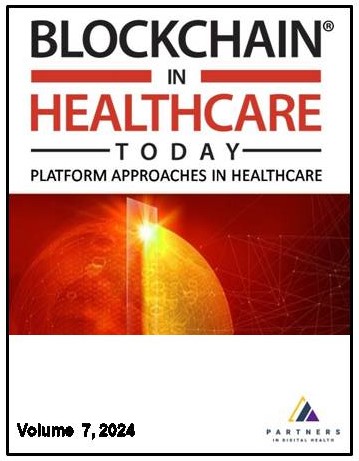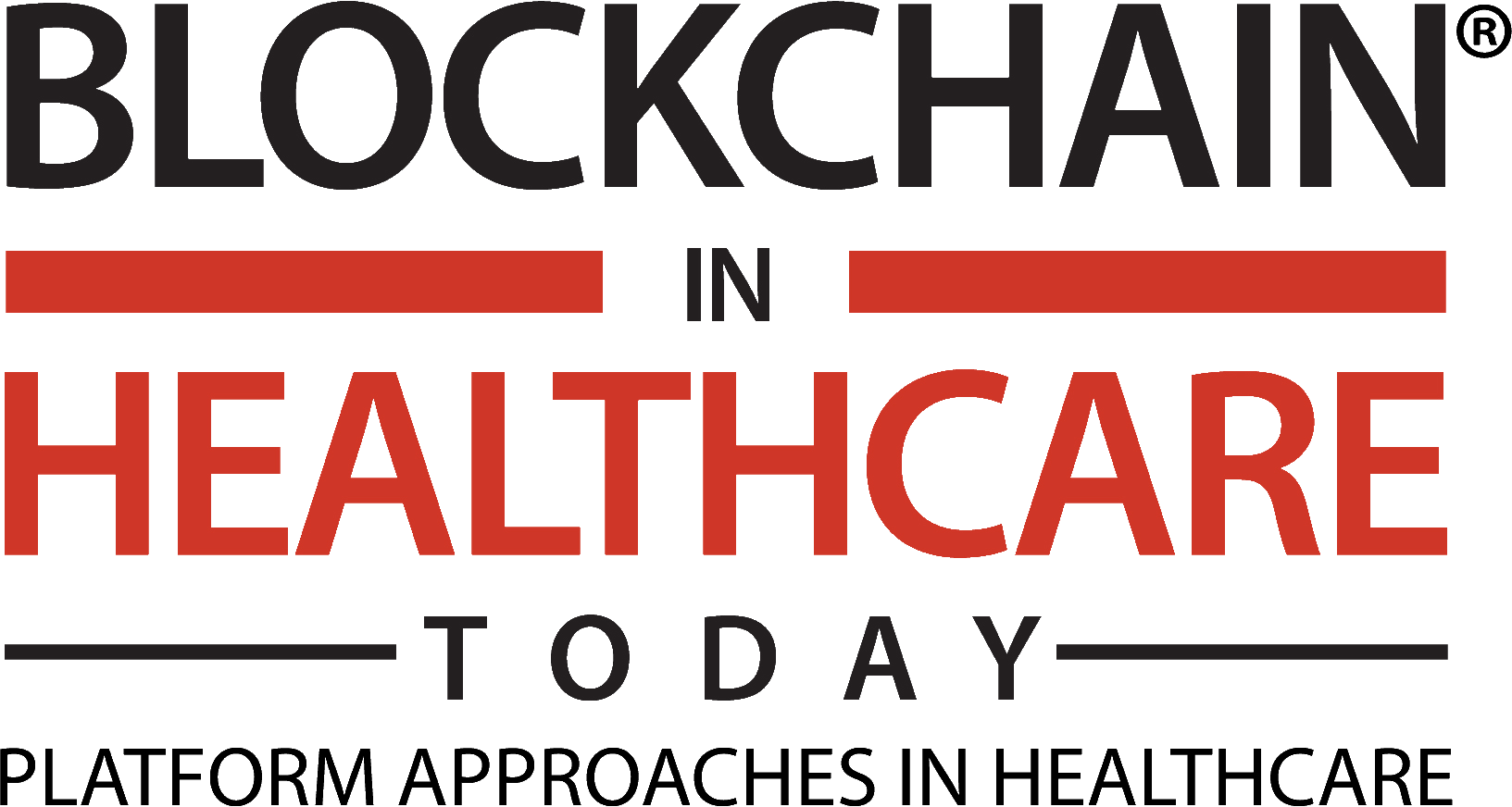Current issue

Volume 7, Issue 3, 2024
Online ISSN: 2573-8240
Volume 7 , Issue 3, (2024)
Published: 16.12.2024.
Open Access
Blockchain in Healthcare Today (BHTY) is the leading international open access journal that amplifies and disseminates platform approaches in healthcare and distributed ledger technology research and innovations. Fields of interest include healthcare information systems, leveraging data science tools and techniques, interoperability, consent mechanisms, privacy preservation, security of health data, clinical trials management, supply chain management, revenue cycle automation, immersive technologies, tokenomics, governance, regulation, network technologies, clinical computing, cryptography, and failed experiments in this expanding specialty field of research.
All issues
Contents
23.03.2018.
Use Cases
Accelerating Genomic Data Generation and Facilitating Genomic Data Access Using Decentralization, Privacy-Preserving Technologies and Equitable Compensation
In the years since the first human genome was sequenced at a cost of over $3 billion, technological advancements have driven the price below $1,000, making personal genome sequencing affordable to many people. Personal genome sequencing has the potential to enable better disease prevention, more accurate diagnoses, and personalized therapies. Furthermore, sharing genomic data with researchers promises identification of the causes of many diseases and the development of new therapies. However, sequencing costs, data privacy concerns, regulatory restrictions, and technical challenges impede the growth of genomic data and hinder data sharing. In this article, we propose that these challenges can be addressed by combining decentralized system design, privacy-preserving technologies, and an equitable compensation model in a platform that vests control over data with individual owners; ensures transparency and privacy; facilitates regulatory compliance; minimizes expensive data transfers; and shifts the sequencing costs from consumers, patients, and biobanks to researchers in industry and academia. We exemplify this by describing the implementation of Nebula, a distributed genomic data generation, sharing, and analysis platform.
Dennis Grishin, Kamal Obbad, Preston Estep, Kevin Quinn, Sarah Wait Zaranek, Alexander Wait Zaranek, Ward Vandewege, Tom Clegg, Nico César, Mirza Cifric, George Church
23.03.2018.
Reviews
Applications of Blockchain Within Healthcare
There are several areas of healthcare and well-being that could be enhanced using blockchain technologies. These include device tracking, clinical trials, pharmaceutical tracing, and health insurance. Within device tracking, hospitals can trace their asset within a blockchain infrastructure, including through the complete lifecycle of a device. The information gathered can then be used to improve patient safety and provide after-market analysis to improve efficiency savings. This paper outlines recent work within the areas of pharmaceutical traceability, data sharing, clinical trials, and device tracking.
Liam Bell, William J Buchanan, Jonathan Cameron, Owen Lo
29.11.2018.
Welcome and Introduction
Keynote Address: Transformational Technologies in Healthcare - All Aboard!
John D. Halamka
29.11.2018.
Track: Blockchain
The Decentralization Zeitgeist: Can the Revolution be Real?
Session Description: What does the future look like if blockchain is the foundation of the future economy? Join us to explore the culture, economics, and inner dynamics of this burgeoning industry. Who is leading the charge? What are the values and ideologies driving the growth of this technology and how might that impact the nature of the global economy five, ten, twenty years from now?
Finally who is using these new decentralized tools? How does a tech-heavy enterprise like blockchain enable the average non-tech consumer to maximize its utility? What are the barriers to mainstream adoption and how can we best bridge them?
In a decentralized industry what would it mean to come together? How might we pool resources to build the non-technical infrastructure necessary to meaningfully advance mainstream blockchain adoption?
Shira Frank, Fennie Wang
23.03.2018.
Use Cases
Public Health Surveillance using Decentralized Technologies
This article describes how blockchain technologies can be used in the context of Public Health Surveillance through decentralized sharing of genomic data. A brief analysis of why blockchain technologies are needed in public health is presented together with a distinction between public and private blockchains. Finally, a proposal for a network of blockchains, using the Cosmos framework, together with decentralized storage systems like IPFS and BigchainDB, is included to address the issues of interoperability in the health sector. Keywords: Blockchain, Cosmos Framework, Decentralized Technology, PublicHealth Surveillance
Jose Luis Bellod Cisneros, Frank Møller Aarestrup, Ole Lund
23.03.2018.
Use Cases
Enforcing Human Subject Regulations using Blockchain and Smart Contracts
Recent changes to the Common Rule, which govern Institutional Review Boards (IRB), require implementing new policies to strengthen research protocols involving human subjects. A major challenge in implementing such policies is an inability to automatically and consistently meet these ethical rules while securing sensitive information collected during the study. In this paper, we propose a novel framework, based on blockchain technology, to enforce IRB regulations on data collection. We demonstrate how to design smart contracts and a ledger to meet the requirements of an IRB protocol, including subject recruitment, informed consent management, secondary data sharing, monitoring risks, and generating automated assessments for continuous review. Furthermore, we show how we can employ the immutable transaction log in the blockchain to embed security in research activities by detecting malicious activities and robustly tracking subject involvement. We evaluate our approach by assessing its ability to enforce IRB guidelines in different types of human subjects studies, including a genomic study, a drug trial, and a wearable sensor monitoring study. Keywords: Blockchain, Data Sharing, Data Exchange, EHR, electronic health record, Ethereum, interplanetary filesystem, IPFS
Olivia Choudhury, Hillol Sarker, Nolan Rudolph, Morgan Foreman, Nicholas Fay, Murtaza Dhuliawala, Issa Sylla, Noor Fairoza, Amar K Das
23.03.2018.
Use Cases
Ethics Governance Outside the Box: Reimagining Blockchain as a Policy Tool to Facilitate Single Ethics Review and Data Sharing for the 'omics' Sciences
Clinical research and health information data sharing are but ripples in a growing wave of reimagined applications of distributed ledger technologies beyond the digital marketplace for which they were originally created. This paper explores the use of distributed ledger technologies to facilitate single institutional ethics review of multi-site, collaborative studies in the dataintensive sciences such as genetics and genomics. Immutable record-keeping, automatable protocol amendments and direct connectivity between stakeholders in the research enterprise (e.g., researchers, research ethics committees, institutions, funders and regulators) comprise several of the conceptual and technological advantages of distributed ledger technologies to research ethics review. This novel-use proposal dovetails recent policy reforms to research ethics review across North America that mandate a single ethics review for any study that takes place across more than one research site. Such reforms in the United States, Canada and Australia replace prior institution-by-institution approval mechanisms that contributed to significant research delays and duplicative procedures for collaborative research worldwide. While this paper centers on the Common Rule revision in the United States, the single ethics review mandate is a noteworthy example of regulation evolving in parallel with advances in the dataintensive sciences it governs. The informational exchange capacities of distributed ledger technologies align well with the procedural goals of streamlining the ethics review system under the new Common Rule ahead of its official implementation on January 19, 2020. The ethical, legal and social implications of applying such technologies to ethics review will be explored in this concept paper. Namely, the paper proposes how administrative data from research ethics committees (REC) could be protected and shared responsibly, as well as interinstitutional cooperation negotiated within a centralized network of research ethics committees using the blockchain. Keywords: Blockchain, Data Sharing, Ethics Review, Governance, IRB, Research, Single Mutual Recognition
Vaso Rahimzadeh
23.03.2018.
Use Cases
Blockchain as a Foundation for Sharing Healthcare Data
Blockchain technology has the potential to transform healthcare delivery by facilitating data sharing between providers and electronic health record (EHR) systems. However, significant roadblocks stand in the way of widespread implementation of this technology across the healthcare industry. Our blockchainbased data-sharing solution addresses two of the most critical challenges associated with using blockchain for health data sharing: protecting sensitive health information and deploying and installing blockchain software across diverse hospital environments. Since transparency is a fundamental feature of blockchain, we enabled user- and group-based secret sharing by adding purpose-built software that leverages a collection of well-established cryptographic algorithms. To streamline deployment, we built a containerized solution that guarantees portability, simplifies installation, and reduces overhead maintenance costs associated with administration. To ensure ease of implementation in a hospital system, we designed our blockchain solution using a distributed microservices architecture that allows us to encapsulate core functions of our system into isolated services that can be scaled independently based on the requirements of a particular hospital system deployment. As part of this architecture, we built core components for securely handling cryptographic secrets, interacting with blockchain nodes, facilitating large file sharing, enabling secondary-index based lookups, and integrating external business logic that governs how users interact with Smart Contracts. The innovative design of our blockchain solution, which addresses critical data security, deployment, and installation challenges, provides the healthcare community with a unique approach that has the power to connect providers while protecting sensitive data. Keywords: Blockchain, Data Sharing, Data Exchange, EHR,electronic health record, Ethereum, interplanetary file system, IPFS
Marek A Cyran






